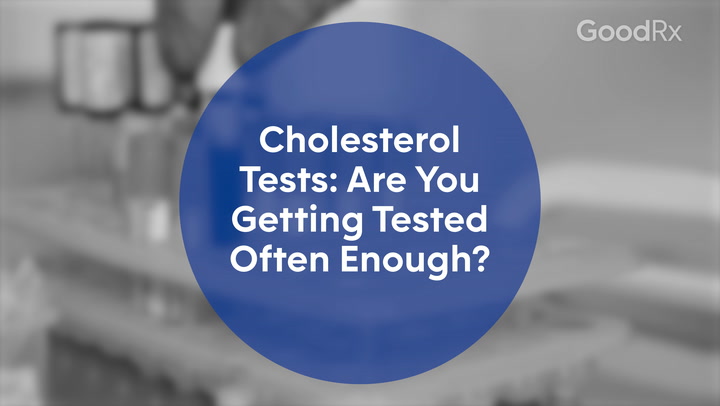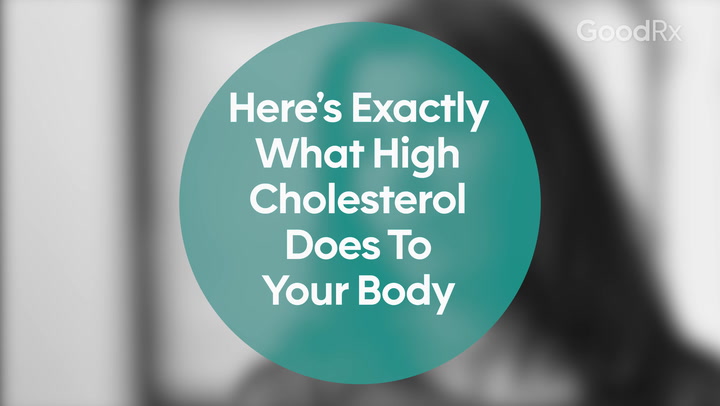
A Guide to Heart Arrhythmias
Key takeaways:
An arrhythmia is an abnormal or irregular heartbeat.
Some arrhythmias are harmless. But others can cause serious problems, including stroke or sudden death.
The treatment for an arrhythmia depends on the type of rhythm and what’s causing it.
Table of contents

Arrhythmias are abnormal heartbeats. They can be too fast, too slow, or irregular. They’re often felt as palpitations, but sometimes they might even feel like normal beats. Arrhythmias occur when something upsets the electrical patterns of your heart.
Some arrhythmias are harmless. Some can cause symptoms like dizziness or shortness of breath. And others may put you at risk for blood clots that can cause a stroke and other problems. In the worst cases, some arrhythmias can be deadly.
If this all sounds a little confusing, don’t worry. Here, we’ll explain how arrhythmias are diagnosed, why they happen, and why they matter.
What causes an arrhythmia?
There are many things that can cause or trigger arrhythmias. The causes typically fit into one of these categories: medical conditions, lifestyle factors, or something else.
Here are some examples of what can lead to arrhythmia.
Medical conditions
Heart valve abnormalities
Abnormal electrolytes, especially potassium and magnesium
Thyroid problems
High blood pressure
Sleep apnea
Diabetes
Viral infections
Atrial fibrillation vs. flutter: These similar arrhythmias have key differences, too.
Having heart palpitations? Here’s to see see a healthcare professional.
Does insurance cover heart monitors? If you need heart monitoring, you may be wondering about the cost.
Lifestyle
Stress
Alcohol
Smoking
Illicit substances, like cocaine or amphetamines
Energy drinks
Over-the-counter stimulants and some supplements
Other
Genetics
Aging
Some medications
Interactions between medications
Trauma to the heart
Menopause
Having one or more of these doesn’t mean that you’ll get an arrhythmia. But it will put you at a higher-than-average risk. Sometimes there’s no obvious cause for an arrhythmia.
Read more like this
Explore these related articles, suggested for readers like you.
What are the different types of arrhythmias?
To understand the types, it helps to remember that the heart has four chambers. Arrhythmias can come from the top chambers of the heart, called the atria. This type often includes the word “atrial” in the name. Others come from the bottom chambers of the heart, the ventricles. These are ventricular arrhythmias.
Premature atrial contractions
Premature atrial contractions (PACs) are early beats that come from the top of the heart. PACs feel like skipped beats, and often come and go. Stress, hormones, and stimulants are common causes. They’re usually harmless but can be very annoying.
Atrial fibrillation
Atrial fibrillation (AFib) is more common in people over 70, but younger people can get it, too. It’s caused by fast and irregular electrical signals in the atria. Usually, it causes symptoms. But some people won’t feel AFib at all.
AFib is important because, if left untreated, it can cause blood clots to form in the heart. Those clots can go to the brain and cause a stroke.
Atrial flutter
Like Afib, atrial flutter is more common in people over 70. And, like Afib, it can cause blood clots and strokes. It’s a more organized rhythm than AFib, so sometimes it can just feel like a faster-than-normal heart rate.
Premature ventricular contractions
Premature ventricular contractions (PVCs) are early beats from the bottom of the heart. Like PACs, they can feel like skipped beats, but sometimes the sensation is more forceful. They’re usually harmless, but if they happen often, they can sometimes put extra stress on the heart. PVCs are more common in people with existing heart conditions, like those mentioned above.
Ventricular tachycardia
Ventricular tachycardia (VT) is a string of PVCs, one after the other. In most cases, it requires treatment. VT can be serious. In the worst cases, it can progress to ventricular fibrillation, which is the rhythm that happens with fatal cardiac arrest. People with a history of heart attack or heart failure are more likely to have this problem.
Bradycardia
Bradycardia means your heart rate is below 60. For some people, that isn’t a problem. For example, athletes often have resting heart rates in the 50s. Usually their heart rates will speed up with exercise. But if your heart rate remains low, even with activity, this could be a sign of bradycardia.
Heart block is a type of bradycardia caused by an electrical blockage in your heart. It means that the atria and ventricles aren’t communicating, or that the electrical impulses from the atria are getting through more slowly than normal. There are several types of heart block, and not all of them are dangerous. The most serious forms of heart block can cause the heart to stop beating. These rhythms usually require a pacemaker.
Which arrhythmias are the most serious?
To summarize, not all arrhythmias are dangerous, such as PACs. But some are.
These arrhythmias definitely need treatment:
Atrial fibrillation
Atrial flutter
Ventricular tachycardia
Sometimes these arrhythmias need treatment:
Premature ventricular contractions
Bradycardia
Heart block
What are the symptoms of a heart arrhythmia?
Everyone experiences heart arrhythmias differently. The more serious arrhythmias tend to cause the most severe symptoms, but that’s not always the case.
Common symptoms of heart arrhythmias include:
Skipped heart beats
A fluttering sensation
Pounding in the chest
Heart racing
Weakness
Shortness of breath
Dizziness
Chest discomfort
Fainting
How is an arrhythmia diagnosed?
If you’re having symptoms, the next step is usually an electrocardiogram (EKG). This is a quick recording of the heart’s electrical activity. But an EKG usually only records for 10 seconds. So, if your arrhythmia comes and goes, it might not show up on the EKG.
The next step is a heart monitor. Depending on the type of monitor your cardiologist orders, it could record your heart rate for 24 hours up to several weeks. In situations where it’s critical to know what’s going on with the heart rhythm, an implantable monitor is another option.
Depending on what your monitor shows, you may be asked to do further testing. That might include blood work, an echocardiogram, or even a stress test, depending on the situation.
Before your appointment, it can be helpful to record your heart rhythm with your smartwatch or another home monitor, if you have one. Take the recordings with you to your medical appointment. Although it may not be a medical device, sometimes a smartwatch will clearly show what’s going on.
What is the treatment for arrhythmia?
There isn’t a “one-size-fits-all” treatment for arrhythmias. It usually depends on what type of arrhythmia you have and what caused it. Other medical conditions can also affect the treatment plan.
Possible scenarios include:
No treatment
Medication to slow down or correct the heart rhythm
Blood thinners, if you have atrial fibrillation or flutter
A pacemaker, if your heart rate is dangerously slow
A defibrillator, if you have ventricular tachycardia and are at high risk of complications
A surgical procedure
If the arrhythmia is due to something else, your care team will probably recommend addressing that issue first. For example:
Arrhythmia due to electrolyte imbalance may require supplementation.
If the problem is related to another medication you’re taking, that may need to be adjusted.
Thyroid issues that cause arrhythmia may require medication or other treatment.
If caused by menopause, the decision for treatment will depend on your risk factors and the type of symptoms you’re having.
Your physician will work with you to determine the best course of treatment. It might feel overwhelming or confusing, and that’s normal. Don’t be afraid to ask questions and try to bring a loved one with you to appointments, if possible. It always helps to have a second set of ears.
The bottom line
Arrhythmias are abnormal heart rhythms. They can be caused by a variety of factors, many of which can be treated or reversed. Some arrhythmias are harmful and require mediation or a surgical procedure. If you’re experiencing abnormal heart beats or palpitations, work with a healthcare professional to discover what type of arrhythmia you have, and what might be causing it. In most cases, there are effective and safe options to treat the problem and get you feeling better.
Why trust our experts?



References
American Heart Association. (2022). Cardiac event recorder.
American Heart Association. (2022). Implantable cardioverter defibrillator (ICD).
American Heart Association. (2023). Holter monitor.
American Heart Association. (2024). Arrhythmias.
Brodkey, F. D. (2024). Heart chambers. MedlinePlus.
Foth, C., et al. (2023). Ventricular tachycardia. StatPearls.
National Heart, Lung, and Blood Institute. (2022). Arrhythmias: Causes and triggers.
Patel, K. H. K., et al. (2022). Obesity as a risk factor for cardiac arrhythmias. BMJ Medicine.





























